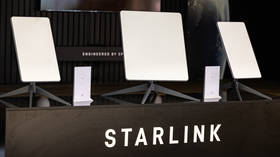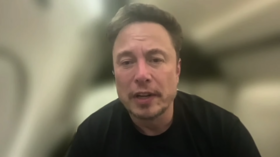Musk set to expand internet services in Africa – Bloomberg

Elon Musk’s SpaceX will partner with e-commerce platform Jumia Technologies to distribute satellite terminals and connectivity kits in Africa, Bloomberg reported on Tuesday.
Jumia, which counts Pernod Ricard SA and Goldman Sachs Group as among its investors, said it will sell Starlink kits on its sites in the coming weeks, starting with Nigeria. It will then begin sales in Kenya before rolling out distribution to the rest of Africa.
“We have seen Starlink do these types of deals in Southeast Asia and South America, and now Africa will also have the opportunity to access the fast-speed internet services,” Jumia chief commercial officer Hisham El Gabry told Bloomberg.
The partnership will help Starlink expand its satellite broadband in areas that lack formal addresses and city mapping, the outlet said.
Starlink’s portable terminals are capable of connecting to low-Earth orbit satellites, and should deliver broadband services to a continent that currently has the world’s lowest internet penetration.
Jumia global head of communications Abdesslam Benzitouni told Business Daily that the partnership will not introduce a new pricing model, but that Jumia will sell the hardware kits, which consist of the Starlink dish, a mounting stand, cables, and a power source at $557, the price indicated on Starlink’s website.
Africa’s main internet providers such as MTN Group and Vodacom Group have found it difficult to expand infrastructure into remote areas.
Big tech companies have made attempts to deliver high-speed internet in Africa through creative approaches, but these efforts have proved unsuccessful, leading to a return to fiber optics and undersea cables.
Meta Platforms’ Facebook attempted to build a gigantic drone to provide high-altitude connectivity on the continent, but it was later grounded. Alphabet’s Google tried something similar with a project called Loon, using helium-filled balloons. The plan was eventually scrapped two years ago.
“We had to establish our own business models and transportation network, even mapping to a certain extent when we started building an African e-commerce business,” said El Gabry. “So we have the needed experience in navigating the retail and merchandise landscape in Africa.”
Starlink satellite technology supports services that are not possible with traditional terrestrial solutions, allowing unmodified smartphones to connect to satellites in areas with coverage gaps. According to experts, this gives it a better chance of connecting people in Africa.
For more stories on economy & finance visit RT's business section














